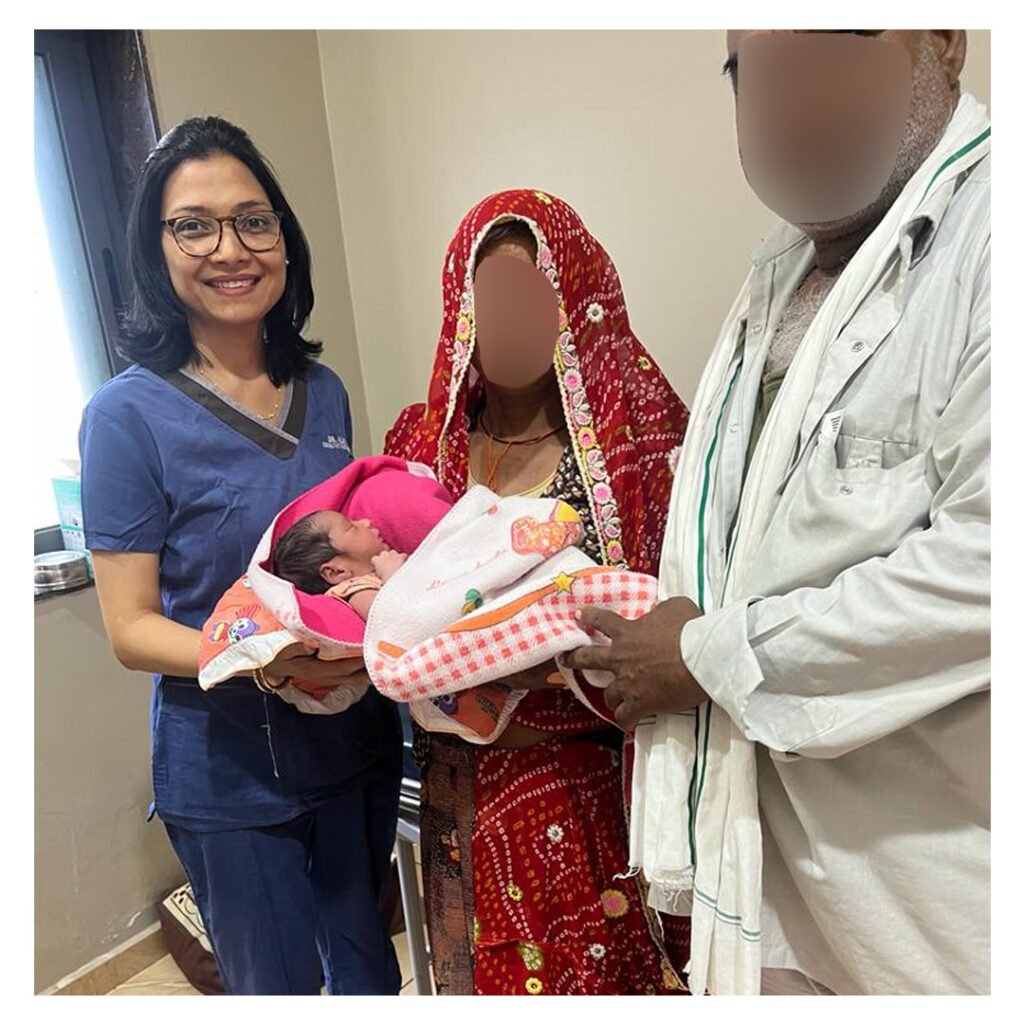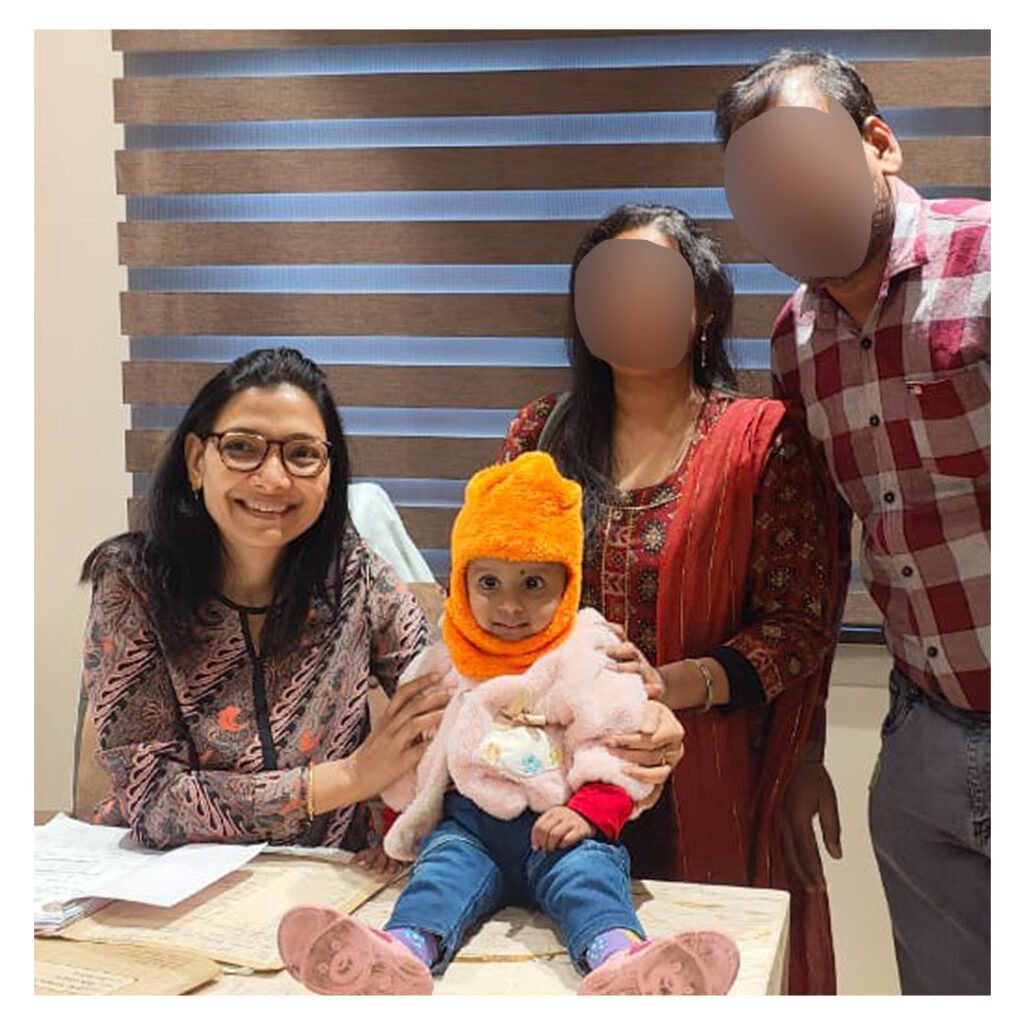Intrauterine Insemination (IUI) Treatment
Treatment & Services
Our Centres
Book Free Appointment
An Intrauterine Insemination (IUI) is a type of artificial insemination in which sperm is injected directly into your uterine cavity near the time of ovulation. This procedure can be executed either with your partner’s sperm or with sperm from a donor.
During natural conception, sperms have to travel from the vagina through the cervix into the uterus and up to the fallopian tubes where the egg has reached from the ovaries. In IUI, sperms are washed and concentrated in the laboratory and are placed directly into the uterus which puts them closer to the egg. This process can increase the likelihood of pregnancy in couples who are finding it difficult to get pregnant.
How is an IUI performed?
Intrauterine Insemination is considered the first-line treatment for unexplained infertility, mild endometriosis, or mild male factor infertility.In general, Intrauterine Insemination (IUI) does two things: medication taken before the injection help stimulate the growth of eggs, making a woman more fertile than she would be without the medication.
Then, via the injection, the sperm is placed inside the uterine cavity, avoiding having to swim through the cervical opening and into the uterus on its own, allowing it to meet the egg more easily. During the procedure, the male partner will be asked to provide a semen sample about an hour or two before being scheduled for insemination.
This is done by masturbating into a sterile container at the doctor’s Hospital. The semen is “washed” to separate the sperm from the seminal fluid. This must be done before the sperm can be injected into the uterus because the seminal fluid contains substances that can irritate your uterus.
Sperm “washing” may also improve the ability of the sperm to fertilize the egg. The insemination takes only a little minute. A fertility specialist will place a speculum inside the vagina, insert a small catheter through the cervix into the uterine cavity, and inject the sperm through the catheter into the uterus. During this IUI procedure, the patient will most likely not feel any discomfort.
Who needs IUI?
- Women who may not ovulate, such as those with PCOS, or hypothalamic patients
- Women with unexplained infertility
- Male partners with minor semen abnormalities or ejaculatory dysfunction
- Male partners who have frozen sperm obtained prior to surgery, travel, or treatment for diseases
- Anyone who needs donor sperm, such as LGBT couples, heterosexual couples struggling with male factor or single women looking to conceive
IUI Cost in Udaipur,India
Intrauterine Insemination is less expensive than IVF, making it an accessible, popular and minimally invasive procedure and usual cost of IUI ranges between INR 10,000 to 15,000.
Who can be helped with IUI?
- Unexplained infertility
- Mild endometriosis
- Issues with the cervix or cervical mucus
- Low sperm count or decreased sperm motility
- Issues with erection or erectile dysfunction
- same sex couples wishing to conceive.
- Single woman wishing to conceive.
- A couple wanting to avoid passing on a genetic defect from the male partner to the child.
IUI is not helpful for the following
- Women with moderate to severe endometriosis
- Women who have had both fallopian tubes removed or they are blocked
- Women who have had multiple pelvic infections
- Women who are menopausal
- Women who are facing premature ovarian failure
- Women who are not able to ovulate even with fertility medicines.
- Men who produce no sperms unless they want to go with donors sperms.
How is IUI done?
IUI can be done in natural cycle or it can be combined with fertility medicines or injections. First of all your doctor well examine you and your partner and ask for some investigations like ultrasonography of the female, check for the tubal patency and a detailed semen analysis.
Once decision for our IUI is taken then your doctor will either follow your natural cycle to decide when are you about to ovulate so that timing of IUI can be decided. If medications are prescribed usually they are to be taken from day two or three of your periods.
About a week after starting the medication you will undergo an ultrasound Depending on your ultrasound your doctor will determine whether you are ovulating or not. Usual time for ovulation is 10 to 16 days after starting the medications.
If your egg is developing properly then an injection called trigger injection is given to ovulate at a predicted time your male partner will be asked to provide a semen sample on the day of procedure or the donor’s sperms obtained from sperm bank will be thawed on the day of the procedure. The sperms will be taken to lab where they’ll be washed and healthier most sperms are separated. This is called semen preparation process where seminal fluid and other debris are removed so that the sperms are very concentrated and in a small quantity. The sperms are injected directly into the uterus.
Is IUI painful or does it require anaesthesia?
IUI is a quick and typically painless procedure and there is no requirement of anaesthesia. You will lie on a examination table and your doctor will use an instrument called speculum to gently open the vagina and see your cervix.
Then the washed and concentrated sperms are loaded in a very thin tube called IUI catheter which is passed through the cervix and placed into the uterus. Very gently the sperms are placed in the uterus and this procedure is very quick taking not more than 5 minutes.
You will be asked to take rest for 15 to 20 minutes following the examination. Most women experience little or no discomfort at all although some women may experience little discomfort when the speculum is inserted. After the IUI procedure, progesterone( a hormone )which supports pregnancy is prescribed. You can take a pregnancy test two weeks after the IUI procedure.
What are the risks?
There is a very minimal risk of infection following the IUI procedure.
Your doctor will use sterile instrument so infection is very very rare. Sometimes the medicines used to induce ovulation will lead to formation of more than one egg, if more than one egg is released there is also increased probability of multiple pregnancies.
Your doctor will try to balance the amount and type of medication so that multiple pregnancies can be avoided. Sometimes the ovaries over respond to fertility medications especially if injections are given and a condition called ovarian hyperstimulation syndrome can occur.
In ovarian hyperstimulation syndrome the ovaries may get enlarged, fluid may collect in abdomen.
In very rare cases, fluid may collect in chest and abdomen, kidney problems, blood clots and twisting of ovary can happen.
What’s the success rate like?
Every couple will have a different response to IUI. An exact success rate is difficult to predict.
A number of factors affect the outcome like
• Age of female
• Underlying infertility cause
• Whether fertility drugs are used
• Other underlying fertility concerns.
Pregnancy rates following IUI are different based on your reasons for needing fertility treatment. Success rate for IUI tends to decrease as the woman increase in her age, any woman who have not gotten pregnant after three cycles of IUI .
In best possible scenarios the success rate of IUI ranges somewhere between 12 to 18%. You must discuss your predicted success rate with your fertility specialist to see if this is a good option for you.
How much does IUI cost?
The cost of IUI treatment can vary based on your treatment protocol. It is cheapest in natural cycles and the cost increases if ovulation-inducing medicines especially injections are used. At our centre cost of IUI typically ranges from rupees 10,000 to 15,000.
Take home message Intrauterine insemination is a relatively low-cost, low-risk, patient-friendly IUI treatment that can be a wonderful option for many couples.
If you are finding it difficult conceiving or you have questions about your options for conception, speak with your fertility specialist. Your doctor can help you determine the best course to achieve pregnancy, and IUI may be an effective route.
Why Choose Us
Our Unique Services And Pillars
Expert Medical Team
- Expert doctors with 15+ years of experience
- Fully equipped infrastructure from consultation to delivery.
- Advanced laparoscopy and hysteroscopy surgical team in-house.
Pillars That Define Alka IVF
- Guided by Transparency
- Experienced specialists ensure ethical and evidence-based care.
- Accessible treatment designed for every aspiring parent.
A Fixed Package Model
- No hidden costs — everything from consultations, scans, injections to medicines all included.
- Custom packages as per the patient
- Final- Cost of IVF/ICSI at AlkaIVF starting at just Rs 75,000/cycle*
From Hope to Happiness
Meet the families whose dreams came true with Alka IVF. Every story is a testament to perseverance, care, and the joy of parenthood.

Testimonials
Hear From Our Happy Patients
Hear from the families whose dreams came true with Alka IVF.
Parenthood Journey, Simplified
Step-By-Step Process To Your Parenthood Journey.
Meet with our fertility experts to discuss your medical history, understand your options, and create a personalized plan tailored to your parenthood journey.
Your first visit includes scans and diagnostic tests to evaluate fertility health. This helps us understand your cycle and prepare the best treatment schedule for you.
During this phase, your ovaries are stimulated, eggs are retrieved, and fertilization takes place in our advanced lab, carefully monitored by our team for the best outcome.
A healthy embryo is selected and gently transferred into the uterus using advanced techniques, giving the best chance for a successful pregnancy.
After 12–14 days, a simple blood test confirms the pregnancy. Our team stays with you at every step, offering care, guidance, and reassurance.
Book an Appointment
Common Questions
Most Popular Questions
IUI, or Intrauterine Insemination, is a fertility procedure where washed and prepared sperm are placed directly into the uterus during ovulation to increase the chances of conception.
IUI is best suited for couples with mild male infertility, unexplained infertility, cervical issues, or when the female partner has healthy fallopian tubes and regular ovulation.
No, IUI is a quick and mostly painless procedure. Some women may experience mild cramping similar to period pain, which subsides within a few hours.
Success rates vary by age and fertility condition but generally range from 10–20% per cycle, with improved results after 2–3 consecutive cycles under medical guidance.
At Alka IVF, IUI treatment is affordable and typically starts around ₹10,000–₹15,000 per cycle, including consultation, medication, and the procedure.
When there is a lack of sperm or low sperm count, various techniques like Intracytoplasmic Sperm Injection (ICSI) can be used. ICSI involves injecting a single sperm directly into an egg to facilitate fertilization. Additionally, donor sperm may be considered as an option. The best approach depends on the specific situation and the advice of a fertility specialist.









